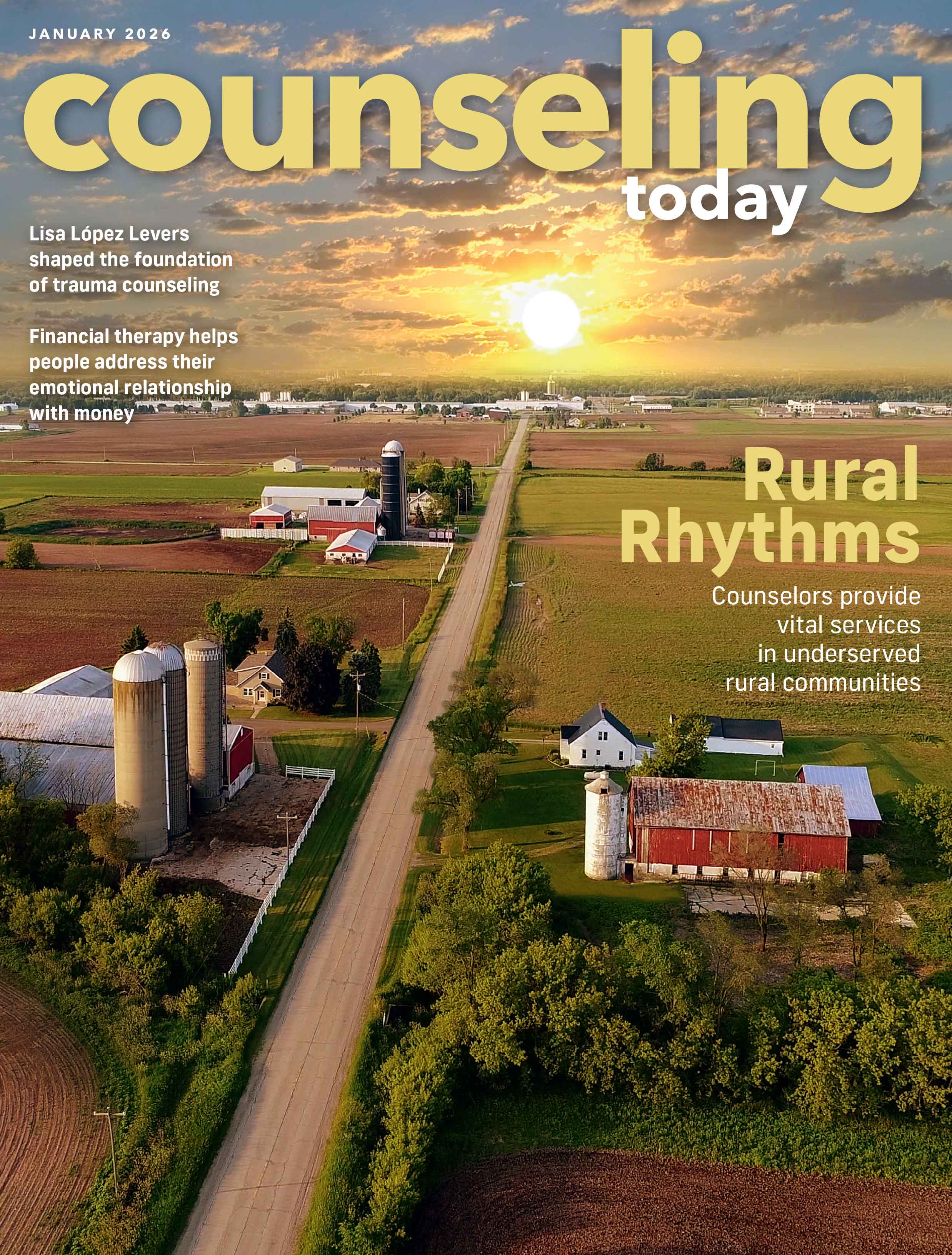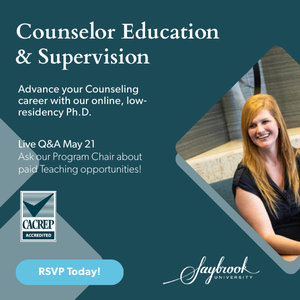Explore Counseling Today Articles
An International Student’s Journey to Becoming a Counselor Educator
Photo Credit: Illustrations by Michael Hoeweler
Every issue we ask a counseling student or new professional to pose a career-related question to another counseling professional who has experience in that topic. This month Taiwo Fafunmi, who graduated with a master’s in behavioral science from Cameron University in Lawton, Oklahoma, and is applying to doctoral programs, asks Chi Li, PhD, about how being an international student informed her experiences. Li is an assistant professor in the counseling department at Palo Alto University in California.
Question:
How did your experience as an international student shape your path to getting a doctorate in counseling?
Answer:
As far back as 2008, I dreamed of becoming a university faculty member. Over the past 16 years, there were many times I asked myself, “Am I going to be a good teacher? Do I have a genuine passion for teaching? What subject do I want to teach and how do I want to teach it?”
The journey to find answers to these questions led me to the U.S., where I earned a master’s degree in educational administration. However, I soon discovered my true passion for counseling. As an international student, the cultural differences I experienced sparked my interest in understanding human behaviors. I deeply admire the authenticity, empathy and curiosity in the work of counselors. I also view counseling as a reciprocal process: While clients are learning from me, they are also helping me to gain insights about ways I can improve. Thus, I decided to return to school for a second master’s degree in clinical mental health counseling. I chose the master’s program at Arizona State University (ASU) because they offered two tracks: practitioner track and researcher track.
Like many other counseling students, I grappled with doubts about my ability to help clients, which prompted me to conduct my first research study on the factors influencing international counseling students’ counseling self-efficacy. With the support and mentoring from ASU faculty, I successfully finished my thesis and got my first publication, which provided me with a solid foundation when I began my doctoral program at Old Dominion University. From that point on, research has been an essential facet of my counselor identity, and I aspire to be a researcher who produces high-quality and ethical work.
I think the most significant distinction between master’s and doctoral programs lies in the emphasis on research. Most counseling doctoral courses and dissertations are research related because doctoral degrees are fundamentally research-oriented degrees. I have noticed that many students harbor a fear of research due to a misconception that it primarily involves statistics. However, it is important to recognize that quantitative methodology represents just one approach among various research methodologies; there are numerous other methodologies that may better align with a student’s research inquiries and interests. Therefore, I think it’s crucial for interested master’s students to acquire some voluntary research experience prior to attending a doctoral program.
- Career Development
- Counselor Educators
- New Professionals
- Professional Counseling
- Students
- New Professionals
- Students
Search CT Articles
Filter CT Articles
Current Issue
Sign Up for Updates
Keep up to date on the latest in counseling practice. Sign up to receive email updates from Counseling Today.



